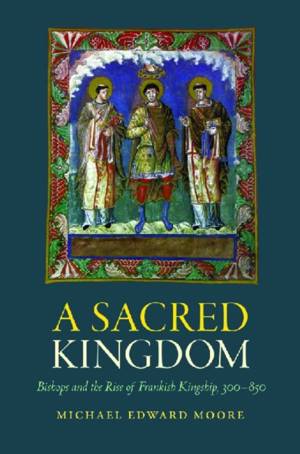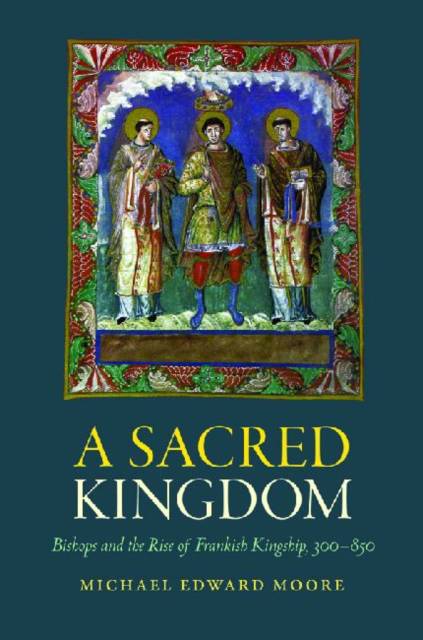
- Retrait gratuit dans votre magasin Club
- 7.000.000 titres dans notre catalogue
- Payer en toute sécurité
- Toujours un magasin près de chez vous
- Retrait gratuit dans votre magasin Club
- 7.000.000 titres dans notre catalogue
- Payer en toute sécurité
- Toujours un magasin près de chez vous
Description
Over a period of some five centuries, Europe was transformed by the emergence of barbarian kingdoms in the regions of the former Roman Empire. In the turbulent post-Roman world, the Christian church and its bishops had considerable sway, as these kingdoms developed new institutions such as Christian kingship. Warlike kingdoms competed with each other and took on projects of political consolidation, religious accommodation, and conversion. Religious imperatives shaped the understanding of political culture, alongside aristocratic consensus and cooperation. The Franks ultimately dominated Europe and built a great empire, pursuing a doctrine of missionary warfare. Carolingian kings and nobles were mobilized by a religiously saturated ideology and by the appeal of an aggressive and expansionist political order.
Throughout these changes, bishops played a guiding role. Their special garments, liturgies, and hairstyle indicated their character as a priestly brotherhood, set apart from the rest of society, whose task was to regulate the affairs of men and ensure the benevolence of God. The function of bishops as a cohesive religious order, and their collaboration with kings, meant that their ideas had a special prestige. By their blessings bishops could protect crops, houses, and even the kingdom and its warriors. By their mastery of laws--canon, Roman, and barbarian--the bishops grasped the right nature of the social order and indicated to others God's plan for the world.
Drawing on the records of nearly 100 bishops' councils spanning the centuries, alongside royal law, edicts, and capitularies of the same period, this study details how royal law and the very character of kingship among the Franks were profoundly affected by episcopal traditions of law and social order.
ABOUT THE AUTHOR:
Michael Edward Moore is associate professor of medieval and European history at the University of Iowa.
PRAISE FOR THE BOOK:
"A masterly survey of the five hundred years in Gaul/Francia after the dissolution of the Roman Empire. It is elegantly and beautifully written, and Moore's impressive mastery of scholarship in some seven languages attests to his impressive command of the field. This book comprises a major new interpretation of the genesis of Frankish culture through the thought and actions of a Gallic episcopacy."--Sally N. Vaughn, professor of history, University of Houston
"Moore's emphasis on the role of episcopal models for royal office is both novel and engaging. His command of the secondary literature is impressive and his readings of primary sources are nuanced . . . This is a subtle, well-argued monograph that will greatly enrich our understanding of the early Middle Ages; it should be required reading for anyone interested in the religion and politics of the era." --Journal of Ecclesiastical History
"The book presents an excellent and nuanced understanding of early medieval kingship that situates it firmly in an ecclesiastical tradition stretching back to the Roman Empire. Michael Edward Moore is a legal historian at heart . . .yet this is no mere history of ecclesiastical law." -The Historian
Spécifications
Parties prenantes
- Auteur(s) :
- Editeur:
Contenu
- Nombre de pages :
- 434
- Langue:
- Anglais
- Collection :
Caractéristiques
- EAN:
- 9780813218779
- Date de parution :
- 01-11-11
- Format:
- Livre relié
- Format numérique:
- Genaaid
- Dimensions :
- 163 mm x 239 mm
- Poids :
- 816 g







